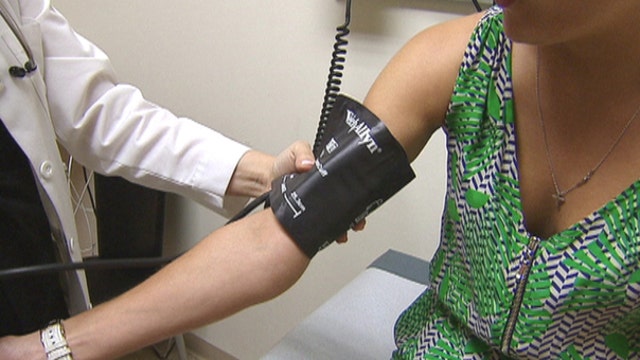ObamaCare Mandate: Will the Younger Generation Buy In?
The proportion of people aged 18 to 34 who are uninsured in the United States sits just beneath the 30% mark. But lawmakers hope to see that number shrink as the Affordable Care Act goes into effect. On Tuesday, the health-care exchanges enacted by President Barack Obama’s signature law went live, providing Americans with a marketplace to shop for insurance plans. The exchanges, operated by a mixture of states, the federal government and private companies, work a lot like Amazon.com, allowing users log on and compare their options. A high-tech spin on an age-old idea – a perfect match for the tech savvy group of young adults in the nation. But Michael Sparer, professor of health policy management at Columbia University’s Mailman School of Public Health, said young people might not be so quick to join in since, as they begin to enter into adulthood, they have a lot of other high-cost concerns weighing on their minds and budgets: Student loans, rent, a mortgage, young kids at home, etc. But, if they don’t sign up for some sort of insurance by the January 1 deadline, these young adults will face a penalty as part of ObamaCare’s “individual mandate.”
“One of the questions for exchanges is while the cost is higher than the penalty, will the cost be reasonable so young, middle class kids will say, ‘Well the cost is low enough, maybe I’m eligible for a subsidy, so maybe I should do this.’ That’s one of the real uncertainties,” he said.
The reason these 18 to 34 year-olds are key to making the ACA tick is because they’re considered low-risk individuals, meaning they’re more likely to purchase an insurance policy, but not have to use it unless they’re in a major accident or suffer from an unexpected illness. Because of that, these young adults tend to offset the higher risk portion of the American population – paying into a system they might not use nearly as often. Paul Delay is a 21-year-old who has insurance from his company, and believes everyone should be insured, but says cost is, and always has been, a barrier for people his age. “Right now, I have my insurance from my company. Luckily I have that,” he said. “But other people who don’t have that luxury, if (the government) ups the prices, it’s going to be much worse.”
Similarly, Shelby Dickens, a 20-year-old college student said she would likely not purchase her own insurance policy if her school did not provide it for her. “I think that everyone should be able to have health care and it should be affordable for everyone, “ she said. “I definitely use my health care…and I get access to things I wouldn’t normally, which I’m very fortunate for…I would like to (buy insurance) if I’m able to, but I don’t think I could do so on my own.” Still, it’s not just the cost of insurance that becomes a concern for many young people. It’s also the confusion surrounding the ACA. The law has been at the center of heated controversy on Capitol Hill about whether the government should have the power to mandate insurance for all Americans. And with the most recent fiscal battle that resulted in a partial government shutdown, the waters grew more opaque for the general public as the fight over repeal or alteration of the law would be tied to a government funding bill. “A lot of people will be confused and uncertain and assume everything about the Affordable Care Act is on hold (as a result of a government shutdown),” Sparer said. “The resolution of the budget crisis, whether its 24 hours, or two weeks after the debt ceiling, is going to be a moment in which, unless something dramatic happens…the American public will see it’s not going to change.” It’s the uncertainty, Sparer said, that will cause many people to play the wait-and-see game before actually enrolling in a health insurance plan. If that’s the case, they have until January 1 to select a plan that best fits their needs before they get hit with a penalty. He said he doesn’t anticipate many young people committing to a plan in the next few weeks, but said come November and December, as the January 1 deadline creeps up, they’ll start making their selections. “More generally, we’ll know in a year (if young people choose to sign up rather than face the penalty) because even if the rate is low, a year from now, the penalty will start going up and the exchanges will be more of a known quantity,” he said. “People will know how they work and a year from now, we’ll be in a much better position to judge the extent of uninsured adults who end up signing up.”




















